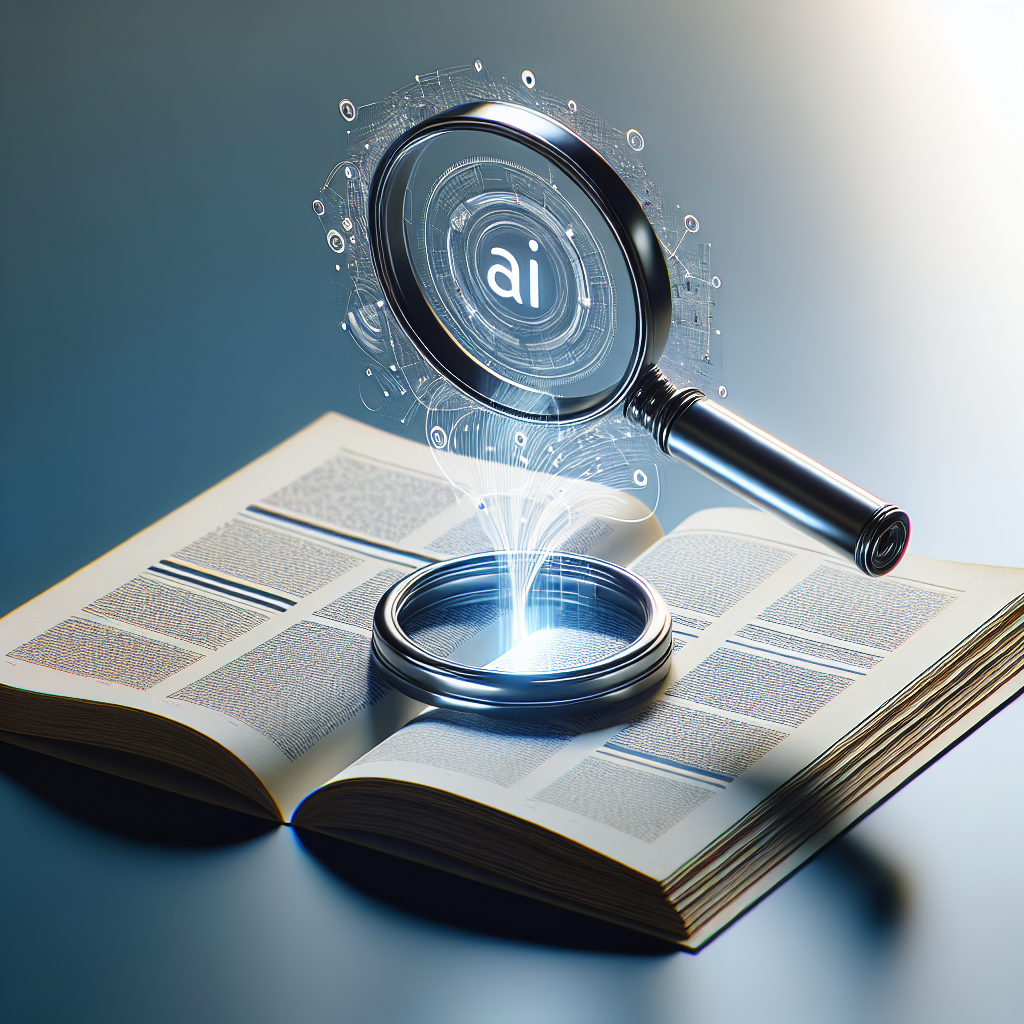AI Tools For Content Optimization: Boosting Engagement. So you’ve created some amazing content for your website or social media platforms, but now you’re wondering how to make it even better and more engaging for your audience. Look no further than AI tools for content optimization. These innovative tools use artificial intelligence algorithms to analyze your content and provide valuable insights on how to improve its effectiveness. From suggesting keywords and headlines that will resonate with your target audience to identifying areas where your content may be lacking, these AI tools are your secret weapon for boosting engagement and taking your content to the next level. Say goodbye to guesswork and hello to data-driven content optimization.
Understanding Content Optimization
Importance of content optimization
Content optimization is a crucial aspect of any successful digital marketing strategy. It involves making your content more visible, relevant, and engaging to your target audience. By optimizing your content, you can ensure that it is easily discoverable by search engines, attracts more traffic, and resonates with your audience. Without effective content optimization, your valuable content might go unnoticed, resulting in wasted efforts and missed opportunities to engage and convert your audience.
Definition of content optimization
Content optimization refers to the process of maximizing the performance of your content by improving its quality, visibility, and relevance. It involves various techniques and strategies to ensure that your content meets the requirements of search engines and resonates with your target audience. Content optimization includes aspects such as keyword research, on-page and off-page SEO, content personalization, and analyzing content performance. By implementing content optimization practices, you can enhance the visibility, engagement, and conversion rates of your content.
The Role of Artificial Intelligence in Content Optimization
Introduction to AI in content optimization
Artificial Intelligence (AI) has revolutionized various industries, and content optimization is no exception. AI-powered tools and technologies have made it easier for marketers and content creators to enhance their content’s performance. These tools leverage machine learning and natural language processing algorithms to analyze data, generate insights, and automate tasks that were previously time-consuming. Thus, AI plays a significant role in improving content optimization processes by providing actionable insights and streamlining workflows.
Benefits of using AI for content optimization
Using AI for content optimization comes with several benefits. Firstly, AI-powered tools can analyze vast amounts of data quickly and accurately, enabling you to identify trends, patterns, and insights that can inform your content strategy. This data-driven approach ensures that your content is relevant, timely, and addresses the needs of your target audience. Secondly, AI tools automate repetitive tasks such as keyword research, content creation, and performance analysis, freeing up your time to focus on higher-level strategies and creative aspects. Lastly, AI-driven content optimization allows you to personalize your content and create a more targeted user experience, leading to higher engagement and conversions.

AI Tools for Analyzing Audience Engagement
Introduction to audience engagement analysis
Understanding your audience’s engagement with your content is essential to optimize its performance. By analyzing audience engagement metrics, such as page views, time spent on page, bounce rates, and social media shares, you can gain insights into how well your content resonates with your audience. Audience engagement analysis allows you to identify content gaps, improve content relevancy, and tailor future content to meet the specific needs and preferences of your audience.
Popular AI tools for audience engagement analysis
Several AI-powered tools can help you analyze audience engagement effectively. Tools like Google Analytics provide comprehensive data on website traffic, user behavior, and conversion rates. They offer in-depth insights into audience demographics, interests, and engagement metrics for individual webpages. SocialMediaToday and BuzzSumo are AI tools that analyze social media engagement by tracking shares, likes, and comments on your content across various platforms. These tools help you understand which content performs best on social media and enables you to optimize your social media strategy accordingly.
Keyword Research and Optimization with AI
Importance of keyword research in content optimization
Keyword research is a crucial component of content optimization as it determines the visibility and ranking of your content in search engine results. By identifying relevant keywords and incorporating them strategically into your content, you can increase your chances of ranking higher in search engine queries. Effective keyword research allows you to understand the language and intent of your target audience, enabling you to create content that aligns with their needs and interests.
AI tools for effective keyword research and optimization
AI-powered tools have transformed the process of keyword research and optimization. Tools like SEMrush, Ahrefs, and Moz provide comprehensive keyword analyses, including search volume, competition level, and keyword difficulty. These tools leverage AI algorithms to suggest related keywords and long-tail variations, helping you optimize your content for a wider range of search queries. Additionally, AI tools like Frase and MarketMuse help you identify content gaps, analyze competitor keywords, and generate content briefs that ensure your content is comprehensive and meets user intent.

Content Creation and Optimization using AI
AI-powered content writing tools
AI-powered content writing tools have significantly streamlined the content creation process. These tools leverage natural language processing algorithms to generate high-quality, relevant, and engaging content quickly. Tools like Grammarly and ProWritingAid provide real-time grammar and style suggestions, enabling you to create error-free and well-structured content. Additionally, tools like Articoolo and Writesonic use AI to generate content based on briefs or prompts, helping you save time and effort in content creation.
AI tools for optimizing headlines and subheadings
Crafting compelling headlines and subheadings is crucial for grabbing your audience’s attention and encouraging them to read your content. AI tools such as CoSchedule’s Headline Analyzer and Emotional Marketing Value Headline Analyzer analyze the emotional impact and effectiveness of your headlines. These tools score your headlines based on various factors, including power words, emotional appeal, and headline length, helping you optimize them for maximum impact and engagement. Additionally, tools like Clearscope and Surfer SEO use AI to analyze search intent and provide recommendations for optimizing your content structure, including subheadings, to enhance its readability and SEO performance.
AI Tools for Content Personalization
Importance of content personalization
Content personalization is essential for delivering a tailored user experience that meets the individual needs and preferences of your audience. Personalized content resonates more with users, leading to higher engagement, conversions, and customer satisfaction. By leveraging AI-powered tools for content personalization, you can create highly targeted and customized content recommendations, product suggestions, and user journeys, enhancing the overall user experience.
Popular AI tools for content personalization
AI tools like Acquia Lift and Optimizely offer personalization features that leverage user data and behavioral insights to deliver personalized content experiences. These tools enable you to segment your audience based on various criteria such as demographics, interests, and behavior, and serve them personalized content based on their preferences. Additionally, tools like Dynamic Yield and Evergage use AI algorithms to provide real-time recommendations, personalized product suggestions, and customized user journeys, ensuring that each user receives content that resonates with them.
AI-driven Content Recommendations
How AI recommends relevant content to users
AI-driven content recommendation systems analyze user data and behavior to offer personalized content suggestions. These systems leverage machine learning algorithms that analyze user preferences, past interactions, and contextual data to understand user intent and interests. Based on these insights, AI recommends relevant and personalized content that aligns with the user’s needs and preferences, increasing engagement and driving conversions.
Benefits of using AI-driven content recommendations
Implementing AI-driven content recommendation systems brings several benefits. Firstly, these systems enhance user experience by delivering personalized content that meets individual preferences, increasing engagement and user satisfaction. Secondly, AI-driven content recommendations improve content discovery, helping users discover relevant content that they may have otherwise missed, leading to increased time spent on the website and more interactions. Lastly, AI-driven content recommendations enable marketers to deliver targeted promotions and offers to enhance conversions and drive revenue.
Improving SEO with AI Tools
AI tools for on-page SEO optimization
On-page SEO optimization is crucial for improving the visibility and ranking of your content in search engine results. AI tools like Yoast SEO and SEMrush offer features that help you optimize your content by analyzing keyword usage, content structure, internal linking, and metadata. These tools provide real-time recommendations and suggestions to ensure that your content adheres to SEO best practices and maximizes its organic reach.
AI tools for off-page SEO optimization
Off-page SEO optimization focuses on improving your website’s authority and reputation through external factors such as backlinks and social signals. AI tools like Moz’s Link Explorer and Majestic provide comprehensive backlink analysis, allowing you to identify high-quality backlink opportunities and monitor your link profile. Additionally, AI tools like Brand24 and Mention track brand mentions and social media signals, enabling you to monitor and engage with relevant conversations about your brand, ultimately improving your off-page SEO efforts.
Social Media Optimization using AI
AI tools for social media content optimization
Social media optimization plays a crucial role in expanding your content reach and engaging with your audience. AI tools like Hootsuite and Sprout Social offer features that help you optimize your social media content by analyzing engagement metrics, scheduling posts, and managing multiple social media platforms from a single dashboard. These tools leverage AI algorithms to suggest optimal posting times, identify trending topics, and curate content that resonates with your target audience, maximizing your social media impact.
AI tools for social media scheduling and automation
Managing multiple social media platforms and consistently posting engaging content can be time-consuming and overwhelming. AI tools like Buffer and Agorapulse simplify social media management by providing features for scheduling and automating your social media posts. These tools leverage AI to suggest optimal posting times, manage content calendars, and automate repetitive tasks such as social media posting and interaction. By using AI-powered social media scheduling and automation tools, you can streamline your social media strategy and ensure consistent and timely content delivery.
Content Performance Analysis with AI
Understanding content performance metrics
Analyzing content performance metrics is essential to evaluate the success of your content marketing efforts. Key metrics include website traffic, engagement metrics, conversion rates, and social media shares. By understanding these metrics, you can identify what types of content resonate most with your audience, track the effectiveness of your content optimization strategies, and make data-driven decisions to improve your content performance and achieve your marketing goals.
AI tools for analyzing content performance
AI tools like Google Analytics and HubSpot’s Content Strategy tool offer comprehensive features for tracking and analyzing content performance metrics. These tools provide detailed reports and insights on website traffic, user behavior, conversion rates, and engagement metrics. Additionally, AI-powered tools like BuzzSumo and ContentSquare offer advanced analytics, including content heatmaps and user journey analysis, providing actionable insights to improve the performance of your content and optimize your marketing strategies.
Conclusion AI Tools For Content Optimization: Boosting Engagement
In conclusion, AI tools have revolutionized content optimization, enabling marketers and content creators to enhance their strategies, engage their audience, and drive better results. From analyzing audience engagement and optimizing keywords to creating personalized content and improving SEO, AI tools have become essential in maximizing the performance and effectiveness of content. By leveraging the power of AI, you can take your content optimization efforts to new heights, boost engagement, and achieve your marketing goals. So, embrace the potential of AI tools and unlock the benefits they offer in content optimization: boosting engagement.
